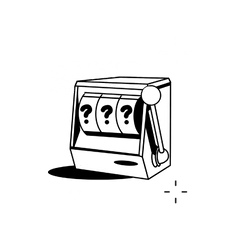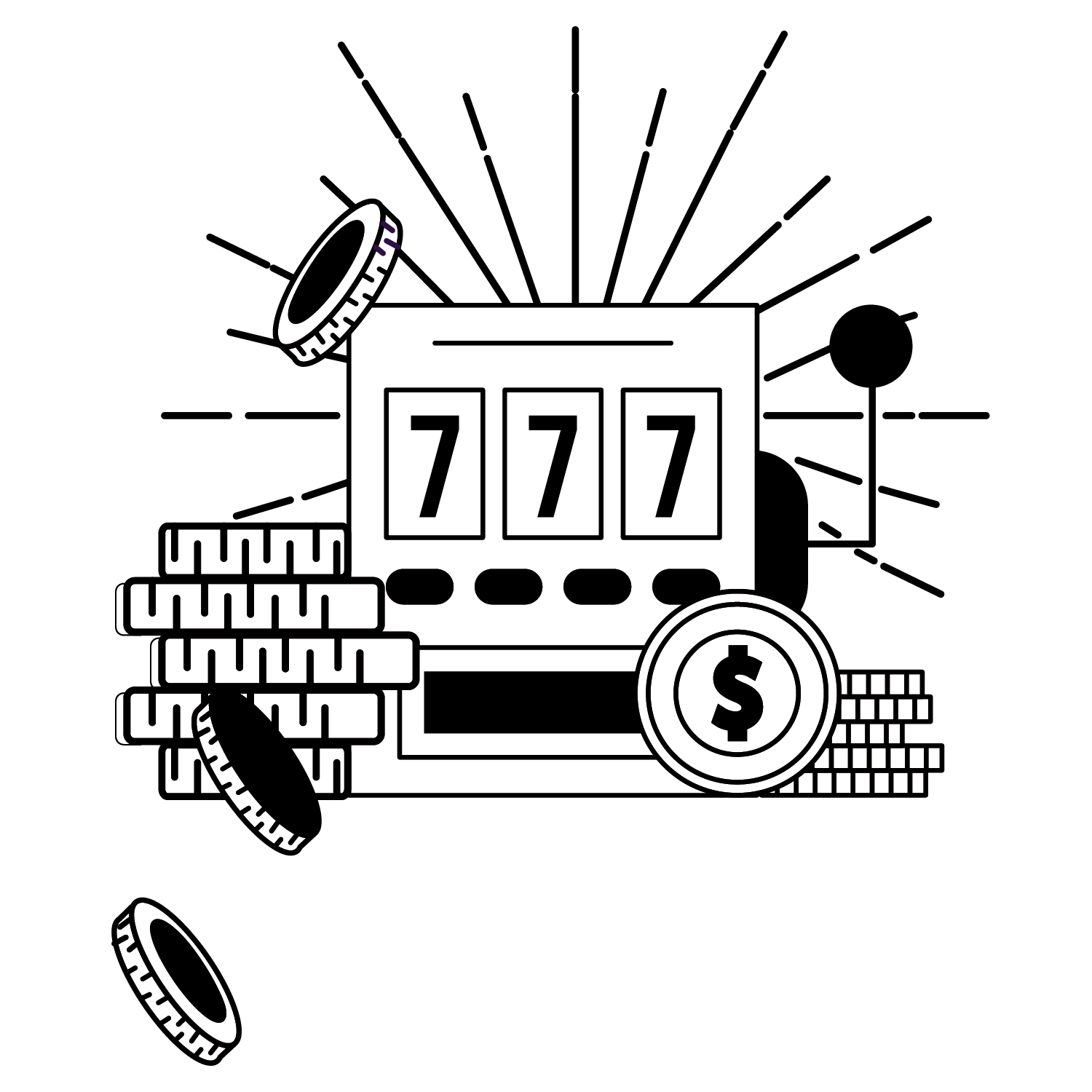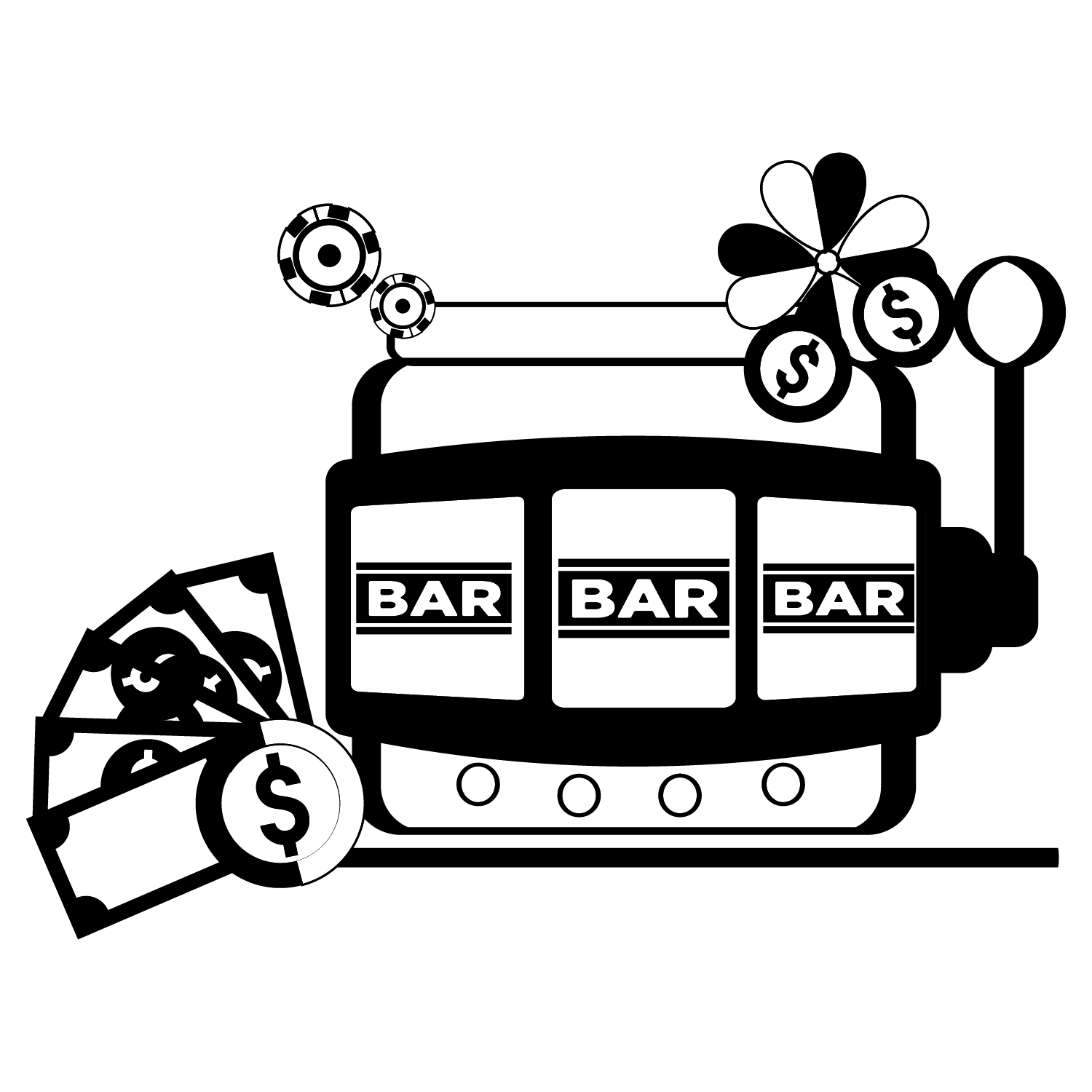Many gamers may have an interest in playing slot machines but don’t know quite where to get started. If you have questions about how slots work, payouts, jackpots, how a player wins, and other topics, this article may help you become more familiar with these popular games.
Slot machines can mean a fun night at a casino or simply passing some time on a mobile phone or tablet device with some free social gaming. The chance to win some money can only add to the experience. Free-to-play online games can also be quite entertaining and have become extremely popular as well.
How Slot Machines Work
A slot machine is a game making use of vertically spinning “reels” that may line up in a certain pattern to potentially determine a random prize for the person dropping money into the machine. That money is collected into a pool and slot machines pay out a certain percentage.
Prize amounts vary depending on each machine. The first slot machine was invented by Charles Fey of San Francisco, California, in 1899. That first machine featured three spinning reels containing a total of five symbols: horseshoes, diamonds, spades, hearts, and a Liberty Bell.
The machine became known as the Liberty Bell and Fey spawned a growing industry. Those first machines were placed in bars and restaurants throughout San Francisco and paid out not in cash, but with prizes like chewing gum and cigars. Competitors followed with different symbols and many of the symbols one might see on a modern slot trace their roots to these early games.
Those first machines are paid out based on the mechanical functions of the machine. There were real reels and how they spun determined payouts. However, modern machines not only often use video reels but also make use of random number generators instead of mechanical workings to determine winners.
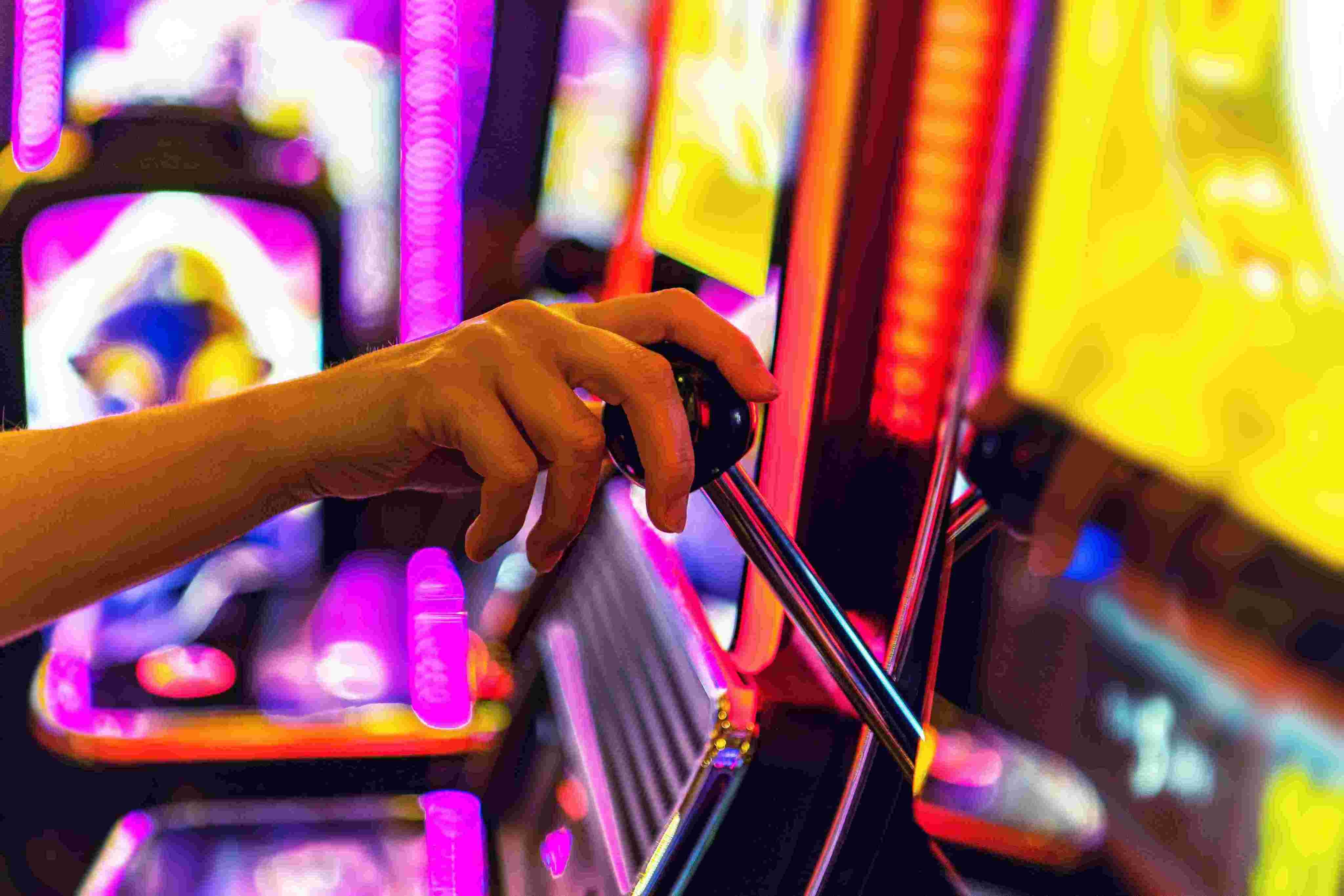
Modern slot machines have become high-tech machines with advanced video, sound, graphics, and gameplay. A player has numerous games to choose from, something for every taste and interest.
In recent years, slot developers have embraced licensing popular movies, celebrities, TV shows, sports teams and leagues, and more. Online slots and social slot-style games have also become extremely popular, with big payouts also coming to players using computers, mobile devices, and tablets. Slots remain the most popular form of casino gaming and are a multi-billion dollar industry.
Bottom Line:Slot games date back to the late 19th Century and have become a multi-billion dollar industry. Most modern slots are now high-tech machines with high-tech graphics, sound, video, and more.
Here are a few of Jackpot Party's most famous Vegas slots:
Click here to explore all of our free slots.
RNGs (Random Number Generators)
A random number generator, or RNG, is a computer technology that is used to determine payouts and jackpots. Money paid out to players isn’t based on the reels themselves. An RNG creates a sequence of simulated random numbers to determine where those reels will land, and thus which payouts are distributed to players.
The RNG creates these sequences at a rate of hundreds and thousands per second. Early mechanical slot machines used actual mechanical workings within each machine to determine winners. Now, a payout and jackpot is determined as soon as the player hits the button to spin the reels.
Some slots even still have an arm (as in one-armed bandits) that a player can pull as if playing an old-fashioned casino where a player pulled an arm to spin the reels. This arm only starts the casino reels via the computer innards and the RNG still determines a winning or losing spin.
The RNG creates a fair system for players, making slots payout completely at random as the name implies. There isn't as much room for mechanical error and RNGs help make sure the system is also fair to players.
One important thing to remember is that payouts and jackpots are completely random. Some players believe a machine that may seem “due” to pay out. This is flawed thinking and payouts all depend on the RNGs. The idea of “hot” and “cold” slots are also misnomers. A player familiar with the concept of RNGs will know that all payouts depend solely on random number generators and while a slot may be “cold,” that can change at any time and the same goes for machines that may seem “hot.”
Bottom Line:Slots no longer use mechanical reels to determine winners. The computer inside a game uses a random number generator to determine the result of every single spin. This allows for complete randomness and also allows for differing ways for players to win on the numerous paylines seen on today’s slots, both at a casino and online. Whether you think a slot is “hot” or “cold” doesn;t matter, a slot pays off only according to what is generated by the random number generator (RNG) in the slot’s computer.
Paylines, Credits, and Pay Tables
Those new to slots may not quite have a grasp on how much money (also known as coin-in) is required and how the differing payouts work. Here’s a look at a few terms that are a key part of this aspect of playing a slot machine:
Paylines
These are the various lines that will payout on the slot reels. Early slot machines only paid out when certain symbols lined up perfectly across a single line on the front of the machine. Video slot machines however can have numerous paylines with more visible symbols than in early machines. These can go horizontal or diagonal on the front of the reels with some machines even paying out vertical lines.
Some payout lines can even run seemingly randomly, depending on the visible symbols. In most modern machines, the number of lines that will pay off for a player depends on the number of credits (money or coin-in) wagered on a particular spin. The more wagered, the more paylines that can pay off for a player.
Credits
This is simply the name for the denomination a player is paying. Someone playing on a 5-cent machine playing 20 credits has $1 on the line on that spin. A play on a penny machine playing 60 credits has 60 cents on the lines on that spin of the reels. Players who win on a certain spin will find any winnings added to the “Credit” sign on the machine. Those using a slot machine can easily check their balance by looking in this area and determining if they need to add more.
Players can also withdraw their funds by hitting “Cash Out.” A user will then receive a paper voucher with the balance amount that can be used in another machine. Vouchers can also be converted back into cash at the casino cashier or a kiosk in the casino. Online slot players can also view their balance at any time and send winning back to their bank accounts as well.
Pay Tables
Each slot machine has a pay table that shows what symbols need to align for a payout of varying sums. These are arranged with the largest payouts, known as the jackpot, at the top of the tables and subsequent payouts below those. The higher on the table your reels line up, the larger the payout. A table also includes an amount paid out depending on the number of credits a player puts in the machine.
Payouts differ depending on the number of credits you play and coin-in can range from one to five credits. Slot manufacturers usually pay out more for players who play “max credits,” meaning the highest number of credits per spin. The highest jackpot, for example, will often be significantly higher for a player at the max-bet amount – someone playing all five credits in the case above. Many slot experts recommend playing at max credits or at least as high as possible so players can receive bigger payouts when they do land on some nice spins.
Visit the full article to learn more about slot terms
Bottom Line:Knowing the basics of how coin-in and payouts work is essential. Credits are the denomination of “coins” (could also be dollars) a player wagers. Players determine the number of coins they’d like to wager per spin. Paylines are the lines on the reels where a player can win and the pay tables are the charts on a machine that show how much a player wins for certain symbols showing up, depending on the number of credits wagered on a spin.
Setting Your Bet Options
When making a slot machine wager, players have a few options to choose from. Some slots allow players to select the denomination they’d like to play throughout the session. For example, a player may select a denomination of a penny or a nickel.
This means each credit a player plays will be worth a penny or a nickel, depending on which one is selected. Players can also select the bet amount they’d prefer for each spin of the reels. For example, if a machine has a max of five credits allowed per spin, the player can select the bat amount preferred.

That could range from a minimum, of one credit, to a maximum of five credits. It’s easy to alter the number of credits you’d like to play as well. Simply toggle through the betting amounts to determine which one you’d like to wager.
It’s important to remember that the amount wagered corresponds to payouts on the pay table. Payouts will be larger for a player wagering four credits versus someone betting only two credits. Also, a max bet will pay out substantially larger jackpots than even a four-credit bet.
Bottom Line:Players have complete control on the number of credits to wager on each spin. Players can generally determine if they’d like to wager from 1 to 5 credits per spin. You can alter this as needed at any time.
Slot Features – Bonus Rounds, Free Spins, & More
Bonus Rounds
Early slot machines mostly consisted of three reels and a few symbols. Line up some symbols and you can win a few bucks. Modern slots, however, make use of computers, video, and high-tech sound to offer players more of a sensory experience. Manufacturers go out of their way to make games special to keep players not just gambling, but also entertained.
Bonus games offer a great way to accomplish this. These are “extra” opportunities for players to win some extra credits without having any real risk. A bonus game is triggered when certain symbols line up, connect, or via some other method included in the machine’s programming.
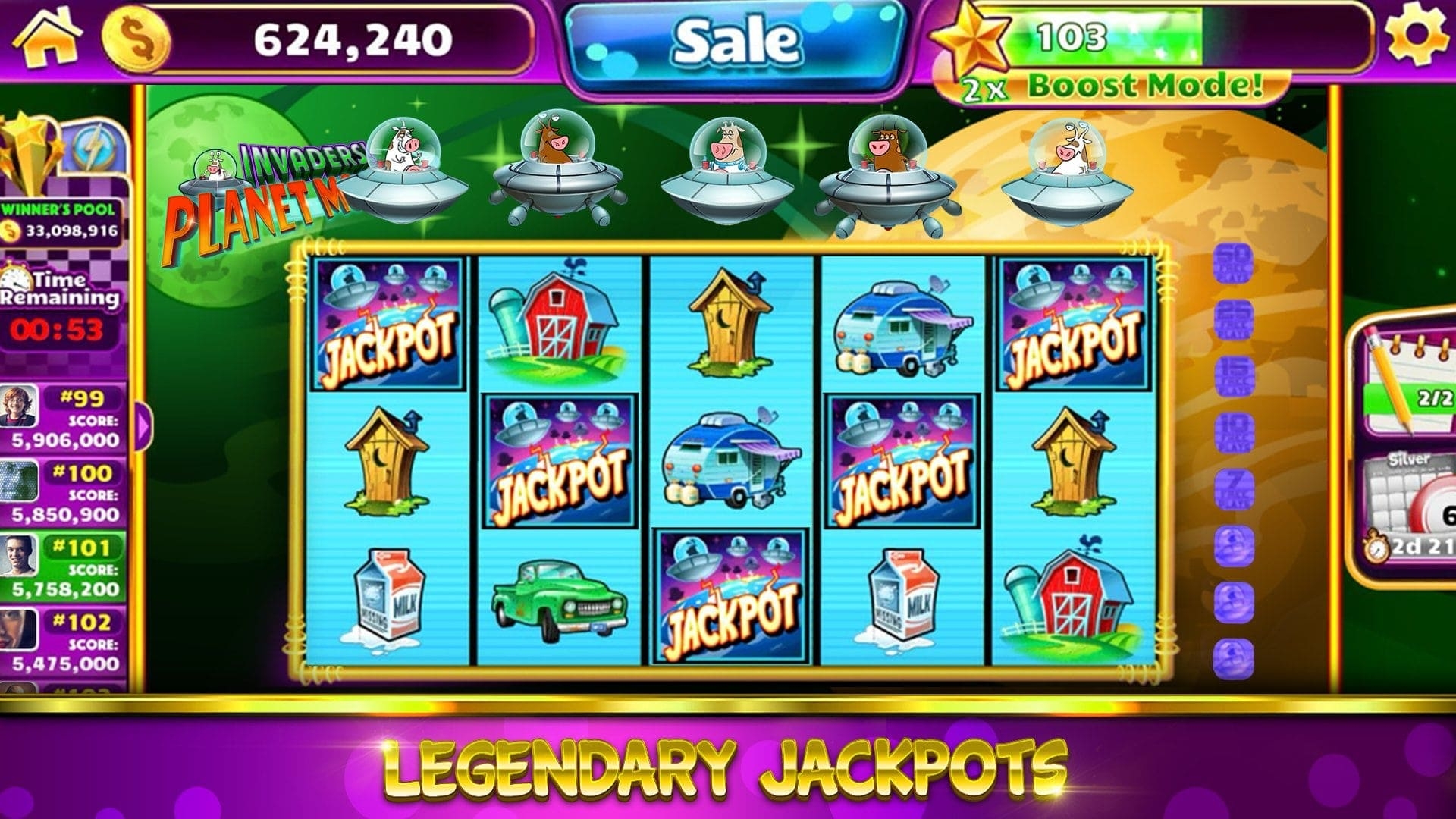
When these are triggered, look for distinct sounds, videos, and other “bells and whistles.” These events allow players an opportunity to compete in some extra games, which could range from touching the screen to making a selection themselves or some other mini-games.
Bonus games are extremely popular and add something different to a slot machine experience. Game developers work hard to create a unique experience. These games also regularly include opportunities to win jackpots and grab some multipliers, which “multiply” the amount won by a certain factor.
Free Spins
Another popular bonus is the addition of “free spins.” These go beyond the credits that a player already wagered on the current spins. The game may include an icon or symbol for “free spins” or may trigger this extra by some other means.
These free spins can come via more subdued means, with the player simply making a few extra spins and hopefully winning some nice extra credits. However, many modern slots make free spin opportunities much more of a production as seen in bonus rounds.
Players may see extra visuals, sound effects, and even more rapidly spinning wheels. For example, let’s say a player is awarded an extra 10 spins. This player can rack up some extra credits as those reels spin and stop during that time.
The winnings are tabulated throughout the free spins and then added to your balance once the session comes to an end. The good news is you can even win jackpots during these spins. It’s also possible to rack up added free spins that only keep the session going longer.
These same extras can also be found in online slots and social gaming slots. Slot developers are creative and may have even more ways to win in side games and extra options. These not only allow for winning some extra cash, but they’re fun too.
Bottom Line:Bonus games and free spins are extra features that allow players to win some extra credits. Bonus games usually involve a completely different game with added graphics and sounds. These can reward jackpots as well. Free spins allow players to earn more credits and even additional spins, with multiple free spins usually running quickly one after another and add to the fun of playing a slot.
Slot Odds
As noted here, slot machines and online slots are house-edge games, meaning a player is up against the house, unlike games like poker. You also can’t shift those odds in your favor via card counting or superior play as in blackjack or video poker.
But what are the odds of winning in a slot machine game? That all depends on the property and the actual machine. Some experts estimate that odds of winning a jackpot can range from 1 in 5,000 to 1 in 34 million, depending on what a person is playing. Progressive jackpots feature extremely long odds, but also massive payouts for winners. Check out the article on how to play progressive slots.
Because of the long odds, expecting to win a huge jackpot is probably unrealistic. Hitting millions of dollars is similar to winning the lottery. Players looking to win need to look at the payout percentages of each property, meaning the percentage of coin-in that is paid back out to players.
A property boasting a payout percentage of 94% means that the casino is only collecting about 6% of all money going into the machine for the house. Payout percentages can be programmed into a machine and those in the upper 90s can be very favorable to players and offer better odds at winning. Online slot players may find even better payout percentages than what might be found at live casinos.
Players should also lower expectations of big wins because of the long odds involved. Slots should be seen as any other form of entertainment, but with a shot of winning some money. Slot gambling can produce huge results occasionally, but even a win of a few hundred dollars is a nice night.
Those who enjoy playing social gaming slots may find their odds much better than when playing real money slots online or in a casino. Social games tend to reward players more, with winning sessions and nice scores much more common as players accumulate points and other rewards to advance up certain steps or levels.
Bottom Line:Players face long odds when it comes to winning a major jackpot, especially on a progressive machine. However, winning smaller amounts is certainly possible. Determining casinos with higher payback percentages offer players more chances to walk away as winners.
Payouts
A payout is a term for money paid out to players who score a winning spin. Modern slots offer many more payouts that might be seen in earlier slot games. Developers know that players want to win and work to at least allow players to win some of their money back.
A spin may pay back only a portion of the amount wagered on that particular spin, double the total, or even more. This gives players at least some sense of winning and keeps them playing. This also allows for longer sessions so that a player’s bankroll will last longer.
Those who take their time and aren't afraid to walk away for a bit can make that money last even longer. (See Slot Tips Below) A player who can find more winning spins than losing spins can hopefully accumulate a winning session.
Those who keep finding winning payouts don’t have to put more funds in a machine, and those who continue playing have a chance at some of the larger payouts, also known as jackpots. See more on that below.
Payouts are determined by symbols. Hit a spin with more of the common symbols or graphics and a player can expect a smaller win. Those rarer occurrences will bring larger payouts. Winning credits is the same as a payout, and the goal when playing a slot game.
Bottom Line:A payout is a total won for a particular spin. A player doesn’t have to win huge amounts to see a payout. Players who score a nice win can hit the “Cash Out” button at any time to take some of those winnings and visit the cashier. Players at online slots will find the same scenario and can cash out some of those winnings at any time as well.
How Jackpots Work
A jackpot is a big payout determined by certain symbols aligning just right in a slot game. These payouts may vary in size and are a bit rarer than typical payouts on a machine and are generally much larger.
A jackpot is built by a certain machine putting “aside” a certain amount of coin as players battle it out at the slots. That prize pool continues to build in the event those certain numbers are generated by the RNG and one lucky player scores some big money.
Hitting a huge jackpot isn't easy or everyone would be winning big. Many machines pay jackpots on several levels. A player may not always hit the biggest payout, but at least has a shot at a few smaller jackpots that still may be larger than typical payouts on an average spin.
For example, a game may offer players jackpots using terms like these:
Mini – a smaller jackpot, but can still be a nice payout.
Major – an even bigger prize that rewards winners nicely.
Grand – the largest jackpot available on the machine that stands out and may trigger a bell for a payout from casino staff.
Online slots follow a similar system and allow players to win some major jackpots as well. As noted in the next section, progressive slot machines offer players a chance to win even bigger jackpots with life-changing money heading to lucky winners.
Bottom Line:Jackpots are larger prizes that pay out much more than average payout on a typical spin. Those lucky enough to win a jackpot may score thousands and thousands of dollars. Slot manufacturers also include smaller jackpots that can still pay out significant amounts to players.
Progressive Jackpots
Certain machines offer players a chance at some really staggering payoffs. That could be in the millions of dollars and numerous lucky slot players have taken home seven-figure sums. These games are known as “progressive” slots. How do these payouts get so huge?
Progressive machines are linked in a certain geographic region. For example, a player on a progressive in Las Vegas can play a machine that is linked to all of those same machines within Nevada. As more and more players add coin-in (the term for the amount of money put into a machine), a certain percentage is set aside for jackpots. The more these machines are played, the larger the jackpot gets. There is usually a mega jackpot and also some smaller jackpots as well.
These pay off when a player hits the jackpot just right. This is rare but can have huge payouts when someone does hit it just right. The largest progressive jackpot came in 2002 at the Excalibur in Las Vegas on a Megabucks machine. This lucky gambler took home a score of $39.7 million after spending just $100. That was quite a score and certainly made for a nice Vegas vacation.
Check out the article on the biggest jackpot wins in history.
Bottom Line:Progressive jackpots can pay much more than a typical jackpot because these games are linked with other games throughout a certain region. Each machine “sets aside” a certain amount for the prize pool, which can really accumulate considering there are so many other machines connected to the system. A player hitting it big on these games for a progressive jackpot has a chance to win millions and millions of dollars.
Slot Tips, Do's and Don'ts
The first thing a player might want to realize when playing a slot is that casinos always have an edge. Unlike games like blackjack, poker, and video poker, a player can't flip the odds in his favor based on superior play or strategy. However, there are a few important concepts to remember when playing slots to offer not only the best chance to win but also a chance to at least make a player’s bankroll last longer. Here are just a few tips to remember.
Set Your Limits – make sure the money plan to wager is a major part of your budget. Slots and gambling are forms of entertainment. Make sure losing your slot bankroll isn't more than you can realistically afford to lose. Try not to avoid heading to the ATM machine – your budget is important.
Check Out Payout Percentages – A payout percentage is an amount a casino’s slots pay back to players. The higher the percentage, the better chance a player has to have a winning session. The same can be said for slot manufacturers, some pay back more to players than others. A simple Internet search should help you determine this and it’s a good idea to play more of these properties and games.
Slow Down – Playing faster only keeps more of your hard-earned dollars flowing into the slots. A more leisurely pace helps a player make his money last longer. It’s also great to take a break or find another game if you hit a losing streak.
Get Rewarded – It’s always key to join a casino’s players club. The property’s rewards card offers you a shot at extras as you play, such as free meals, hotel stays, entertainment options, and other perks. Many casinos also offer “free play” options, meaning a player earns a certain amount of slot play for nothing. A player hitting a nice win on these spins can keep the winnings.
Move Down If Needed – Those who find their dollars flying away at higher denominations shouldn’t be afraid of moving down in denominations. A person playing at quarter credits may want to try nickel slots if the bankroll is looking particularly strained at that level. Those who can afford higher denominations may also want to consider this as well. Higher credit levels tend to have higher payouts, but again only do this if you can truly afford it.
For even more slot machine tips and tricks, click here for SciPlay’s complete slots tips guide.
Bottom Line:Set your limits and take things slowly. Join the player’s club for a shot at some free rewards as well as hopefully some free slot play. These are just a few of the good ideas to remember when planning that next slot getaway – or even just playing online at home.
Slot machines can be a fun way to pass some time at home or to plan a full casino vacation. Practicing and learning how to play slots, as outlined here, can make for a much more rewarding experience.
FAQs

How do I choose a slot machine to play?
When choosing a slot machine to play, consider the following factors: denomination, payback percentage, number of reels and paylines, bonus features, and maximum bet. It's also a good idea to read reviews or ask other players for their recommendations.

What is the minimum bet on a slot machine?
The minimum bet on a slot machine can vary, but most machines start at a minimum bet of one cent. Some machines may have a minimum bet of five cents or more, while others may allow you to bet multiple coins per spin.

How do I place a bet on a slot machine?
To place a bet on a slot machine, simply insert your coins or currency, select your bet size, and pull the lever or press the spin button. You can also use a player's card, which will keep track of your credits and allow you to bet and play more quickly.

What do the symbols on a slot machine mean?
The symbols on a slot machine represent different payouts. The combination of symbols that are displayed on the machine's payline determines the payout for that spin. The machine's paytable will display the payouts for each combination of symbols.

How do I know when I've won on a slot machine?
If you've won on a slot machine, the winning combination of symbols will be displayed on the machine's payline. The machine will also make a winning sound and the credits won will be added to your total.






